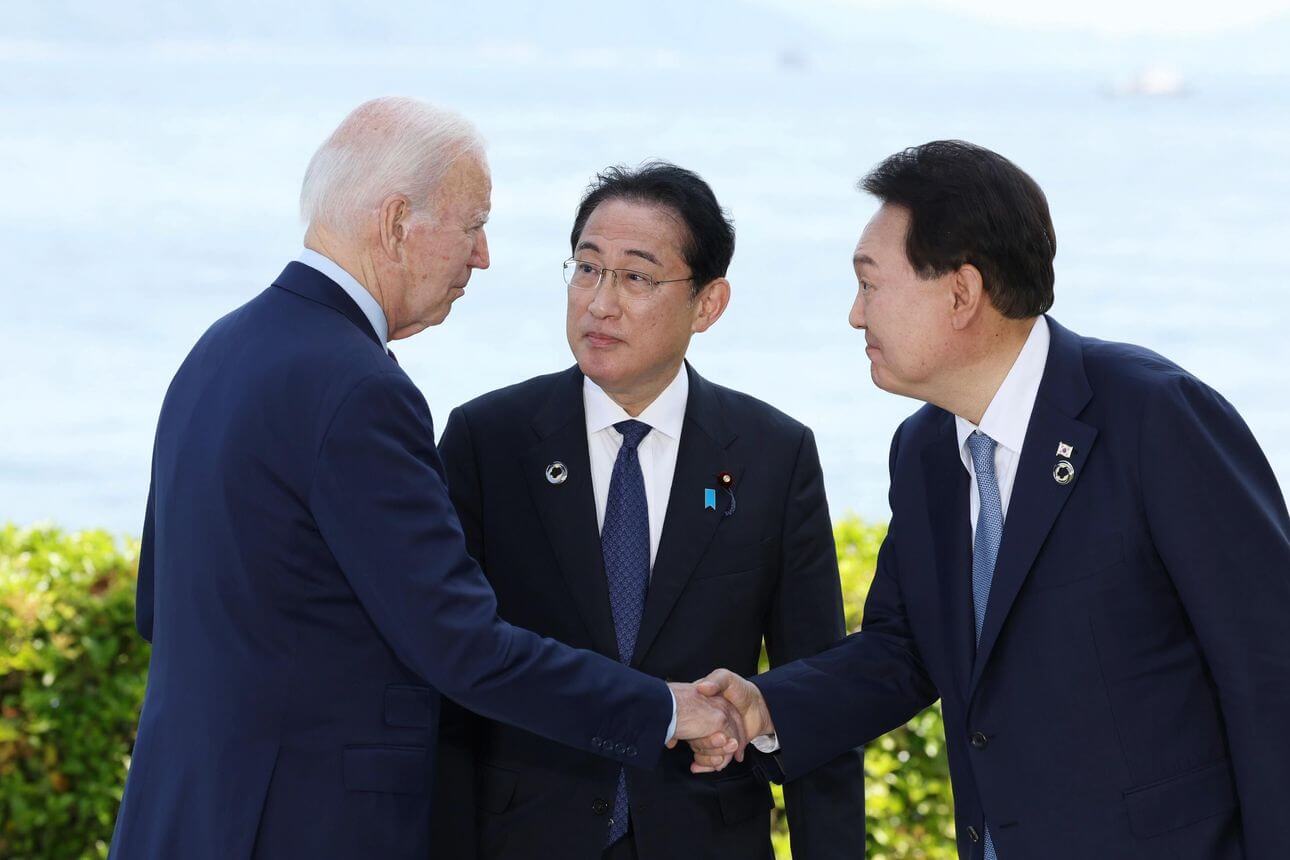Leaders of the US, Japan, and South Korea are meeting at Camp David on Friday, where they are expected to announce details of a new trilateral alliance that China fears is a “mini NATO.”
The agreement is expected to cover intelligence sharing and cybersecurity, including the need to jointly combat disinformation. In addition, the talks on Friday will cover enhanced ballistic-missile defence cooperation and joint military exercises.
.@SecBlinken outlines Friday’s historic trilateral leader’s summit, where @POTUS will host Prime Minister Fumio Kishida of Japan and Republic of Korea President Yoon Suk Yeol at Camp David in Maryland. pic.twitter.com/vdDlhhnMun
— Department of State (@StateDept) August 15, 2023
The three partners will also launch early warning systems to protect supply chains, including semiconductors and advanced technology security.
White House Indo-Pacific coordinator Kurt Campbell said on Wednesday that the agreements reached at the summit would be “a substantial step forward in recognizing the common security picture that each of the countries are facing” and recognising that “it will require common actions.”
Chinese Perception
In an article published on Thursday, Chinese state mouth piece Global Times (GT) said that the three countries “eyeing deeper security cooperation in the name of concern over North Korea’s nuclear program,” are only trying to “form a ‘mini NATO’ structure that will be destructive to regional security,” and will make the situation “more complex with more conflicts.”
#Opinion: Intensifying military cooperation among the US, Japan and South Korea will only bring about bloc confrontation and regional division, disrupting security and development in Northeast Asia. Northeast Asia is a grand stage for collaborative development, not an arena for… pic.twitter.com/a98TvMeEsH
— Global Times (@globaltimesnews) August 15, 2023
“This ‘mini-NATO’ mechanism indeed capitalises on concerns stemming from missile and nuclear threats on the Korean Peninsula. But the design of the mechanism is not aimed at resolving the existing security dilemma in Northeast Asia,” Li Haidong, a professor at the China Foreign Affairs University, told the GT.
Instead, Li noted, “it seeks to exploit the existing security challenges to establish an alliance framework that would dominate the regional security agenda, which reflects US’ destructive intentions.”

